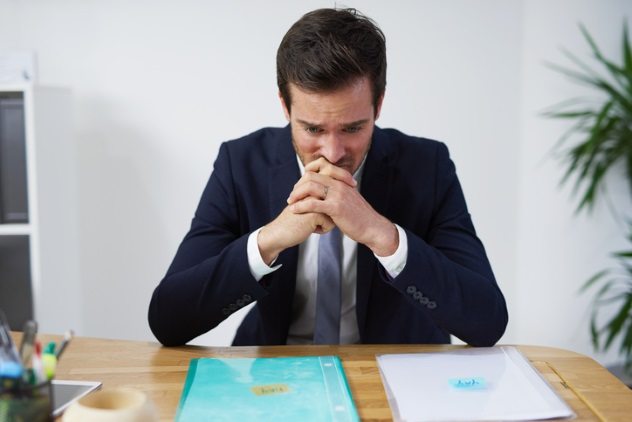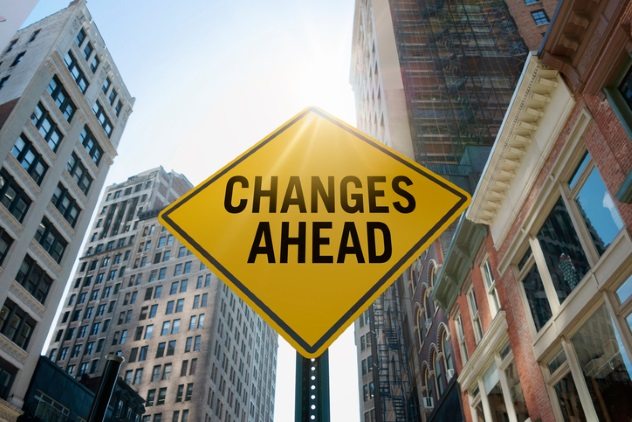 Mysteries
Mysteries  Mysteries
Mysteries  History
History 10 Surprising Stories About the Texas Rangers
 Humans
Humans 10 Philosophers Who Were Driven Mad by Their Own Theories
 Miscellaneous
Miscellaneous 10 Video-Game-Worthy Weapons and Armors from History
 Weird Stuff
Weird Stuff 10 Psychics Who Accurately Predicted Wartime Events
 The Arts
The Arts 10 Pieces of Art Inspired by a Broken Heart
 Health
Health 10 Science Fiction-Sounding New Medical Treatments
 History
History 10 Surprising Facts About the Father of Submarine Warfare
 Space
Space Ten Astonishing New Insights into Alien Worlds
 Weird Stuff
Weird Stuff 10 Bizarre Summer Solstice Rituals Still Practiced Today
 Mysteries
Mysteries Top 10 Haunting Facts About the Ghost Ship MV Alta
 History
History 10 Surprising Stories About the Texas Rangers
 Humans
Humans 10 Philosophers Who Were Driven Mad by Their Own Theories
Who's Behind Listverse?

Jamie Frater
Head Editor
Jamie founded Listverse due to an insatiable desire to share fascinating, obscure, and bizarre facts. He has been a guest speaker on numerous national radio and television stations and is a five time published author.
More About Us Miscellaneous
Miscellaneous 10 Video-Game-Worthy Weapons and Armors from History
 Weird Stuff
Weird Stuff 10 Psychics Who Accurately Predicted Wartime Events
 The Arts
The Arts 10 Pieces of Art Inspired by a Broken Heart
 Health
Health 10 Science Fiction-Sounding New Medical Treatments
 History
History 10 Surprising Facts About the Father of Submarine Warfare
 Space
Space Ten Astonishing New Insights into Alien Worlds
 Weird Stuff
Weird Stuff 10 Bizarre Summer Solstice Rituals Still Practiced Today
Top 10 Bizarre Phobias People Suffer From
A phobia is an extreme or irrational fear of or aversion to something.[1] Humans have a tendency toward phobias. Certain phobias are deemed normal, tolerable, and easy to cope with, like pyrophobia (fear of fire) or thalassophobia (fear of the sea). These are phobias that are relatively easy to manage.
However, people have been found to have unusual and extreme phobias. These bizarre phobias are not only difficult to manage but may significantly and negatively impact the life of the sufferer and the lives of those around them. These are the top ten bizarre phobias that people do suffer from.
10 Haphephobia

Haphephobia is the fear of being touched. This sounds like something from Comedy Central, but it’s a real phobia that people have. With haphephobia, human touch can be overpowering and even painful.[2] In some cases, the fear is specific to only one gender, while in others, the fear relates to all people.
The confession of A.J., a 23-year-old graphic designer in the United States, gives us an insight into the phobia. A.J. feels pain whenever someone touches him. His haphephobia is so bad that at one point in his life, he could remember every single time a person touched him.
This is one type of phobia we consider to be very bizarre. Not only will someone who suffers from it live an unusual life, but it would be very difficult to deal with them.
9 Ergophobia

Ergophobia is the fear of work. It is downright creepy that people suffer from this type of phobia.
Lorna Liebenberg is a self-confessed ergophobia sufferer.[3] For 17 years, Lorna has hardly worked. Whenever she thinks of work, an overwhelming feeling of fear cripples her. Lorna’s case was so bad that she was always getting a new job, and with each new job, her fright increased. Despite the fact that she sometimes had good bosses who were like fathers to her, she still couldn’t help fearing the workplace environment. Unsurprisingly, she has struggled with great financial difficulty throughout her life.
Of all phobias out there, ergophobia is one we do not want to hear about.
8 Neophobia

Neophobia is the fear of anything new, be they situations, places, or things.[4] Neophobic people usually have problems with trying new gadgets, food, habits, or schedules. Societally, neophobia explains why ideas, inventions, fashions, morals, and other societal changes are often resisted despite their logical advantages. The most absurd reality of neophobia is that it is easy to see in retrospect, but it is harder to see where it might be having an effect on us right now.
One of the causes of neophobia is status quo bias. People are biased toward things as they are now and against changes. All the advances of the 19th century, which include national police forces, enlightenment, mass education, social regulation, law, economic organization, and industrialization, were all opposed by the majority of ill-educated masses, mostly for reasons we now understand as emotional but illogical.
Food neophobia is one of the more common forms of the fear. According to research, making young children eat food they have not tried before could do them more harm than good. The study suggests that it could lead to youngsters growing to be anxious adults with low self-esteem. Neophobia is not only a bizarre phobia but one that can cause substantial harm.
7 Philophobia

Philophobia is the fear of falling in love. It is closely related with a previous traumatic experience involving love and relationships. If a person has had a past relationship failure such as divorce, it can cause philophobia. Philophobia can also be a result of an upbringing in which the person saw the ups and down of their parents’ relationships. Moreover, witnessing someone else go through the turmoil of relationships can cause a person to develop extreme anxiety about forming a loving bond.
As humans, positive emotional relationships are essential for us to thrive, both familiar and romantic ones. When a person expresses any kind of romantic interest in someone with philophobia, the sufferer tends to retreat and run in the opposite direction. A philophobic person puts up a wall when he or she notices that someone is getting close.
Generally, philophobia is restricted to romantic partners, but in certain cases, it can extend to family and friends. In such cases, a philophobia sufferer can completely withdraw into their shell. This can put both their physical health and mental health at stake. Several people who suffer from philophobia have made shocking public confessions of what it is like.[5] These confessions paint a sordid picture. The only good news about the condition is that it can be treated. Cognitive behavioral therapy (CBT) and exposure therapy are the most effective treatments for philophobia.
6 Ablutophobia

Ablutophobia is the fear of bathing, washing, and cleaning. It is a situation-specific phobia that is more common in women and children than men. The phobia manifests in different ways, from a fear of showering to a complete phobia of all washing. Ablutophobia is most likely to be caused by unique or specific traumatic instances, which could relate to childhood accidents that involve water or abusive or neglectful parents who may have implemented water or bathing as punishment.[6]
In a bizarre case reported by several mainstream news outlets, a British teenager named Thomas Townsend met an untimely death due to ablutophobia. Townsend was using a large amount of deodorant to compensate for not bathing. He eventually died from inhalation of excess butane gas contained in the deodorant he used. His case is very saddening considering the fact that he was not a drug or alcohol addict.
Ablutophobia can be treated by a mental health practitioner. The goal of any such expert is to first target the initial inciting factor that caused the person’s irrational and extreme fear.
5 Nomophobia

Nomophobia is the fear of being without a mobile phone.[7] One of its causes is addiction to technology. Moreover, people who have had negative experiences upon being left without a cell phone can also develop nomophobia.
Nomophobia, although bizarre, has many sufferers. In a study conducted in the United Kingdom, out of 1,000 people surveyed, 66 percent admitted suffering from nomophobia. Nomophobia is common in all nations of the world, considering the soaring rate of mobile phone addiction. According to a survey, the younger you are, the more prone you are to nomophobia. The youngest age group, consisting of people between the ages of 18 and 24, tops the nomophobic list at 77 percent, which is 11 percent more than the next group, which is those aged 25 to 34. The results of the survey also show that women are more likely to be unnerved by cell phone separation.
The major drivers of nomophobia include boredom, loneliness, and insecurity. Overcoming the fear can be challenging; the good news, however, is that medical intervention is not needed.
4 Decidophobia

Some phobias look like something from a carefully made Hollywood comedy, and this is one of them. Decidophobia is the fear of making decisions. People who suffer from it are usually bothered about having to make choices. The cause of decidophobia is usually a bad experience with decision-making during one’s childhood or at any other point in one’s life. An example would be an unwise decision that led to devastating consequences or witnessing same occur to another person. As a result, decidophobia sufferers usually stick with decisions made by the majority.
There are certain signs that reveal whether a person suffers from decidophobia.[8] One of them is that sufferers usually go out of their way to avoid making choices. Severe decidophobia is so distressing that people will devote serious effort to ensuring that they are not responsible for decision-making in their lives. Another telltale sign is that a sufferer consistently depends on others for help with decisions.
Decidophobia is not only an unusual phobia, but it is one with a lot of negative effects, as frequent indecision interferes with the lives of sufferers. If left untreated, it can severely devastate a person’s life.
3 Heliophobia

Heliophobia is an exaggerated or irrational fear of sunlight.[9] One of the most likely causes is misinterpreted information. For instance, a person who believes that overexposure to sunlight will cause skin cancer could become heliophobic. Moreover, a person who has previously suffered from sunburns may also develop heliophobia.
You might think heliophobia is rare, but people do suffer from it. Lucy Jeffries, a 20-year-old full-time mom, has turned down work and dating, fearing that such activities would expose her to the Sun. Her case is so severe that she suffers from panic attacks whenever she is exposed to sunlight. Lucy’s fear started immediately after a malignant tumor was removed from her thyroid gland. Consequently, she developed a serious fear of cancer, which led to her heliophobia.
2 Genophobia

Genophobia is the irrational psychological fear of sexual intercourse. Genophobic people may be terrified of sex or anything involving it.[10] Genophobia may develop due to an unpleasant sexual experience, such as rape or molestation. The victim may relive the trauma multiple times; consequently, such a person may develop genophobia. Furthermore, genophobia may develop as a result of performance anxiety, especially for those who lack sexual experience or have abstained from sex for a prolonged period of time.
Sophia Birch suffers from genophobia. Sophia’s case is so bad that her childhood sweetheart abandoned her due to lack of sex. Not only is she terrified of engaging in sex, but she is equally terrified of watching a sex scene in a romantic film.
1 Glossophobia

Glossophobia is the fear of public speaking.[11] A glossophobic person is unable to control an overwhelming nervousness that will result whenever he is required to speak publicly. Such people may suffer a nervous breakdown when confronted with public speaking. Sufferers tend to completely avoid any public speaking scenarios.
Glossophobia can be caused by a related trauma or internal predisposition. Most of the people who suffer from glossophobia are distressed about being embarrassed in front of others. The fear can be treated with psychotherapy. Many people are able to overcome their glossophobia with cognitive behavioral therapy. Prince Harry is a self-confessed sufferer of glossophobia.
Jeffrey Morris is a freelance writer with a passion for history, finance, and rarities.
Read more about odd phobias on Top 10 Bizarre Phobias and 10 More Extremely Bizarre Phobias.








